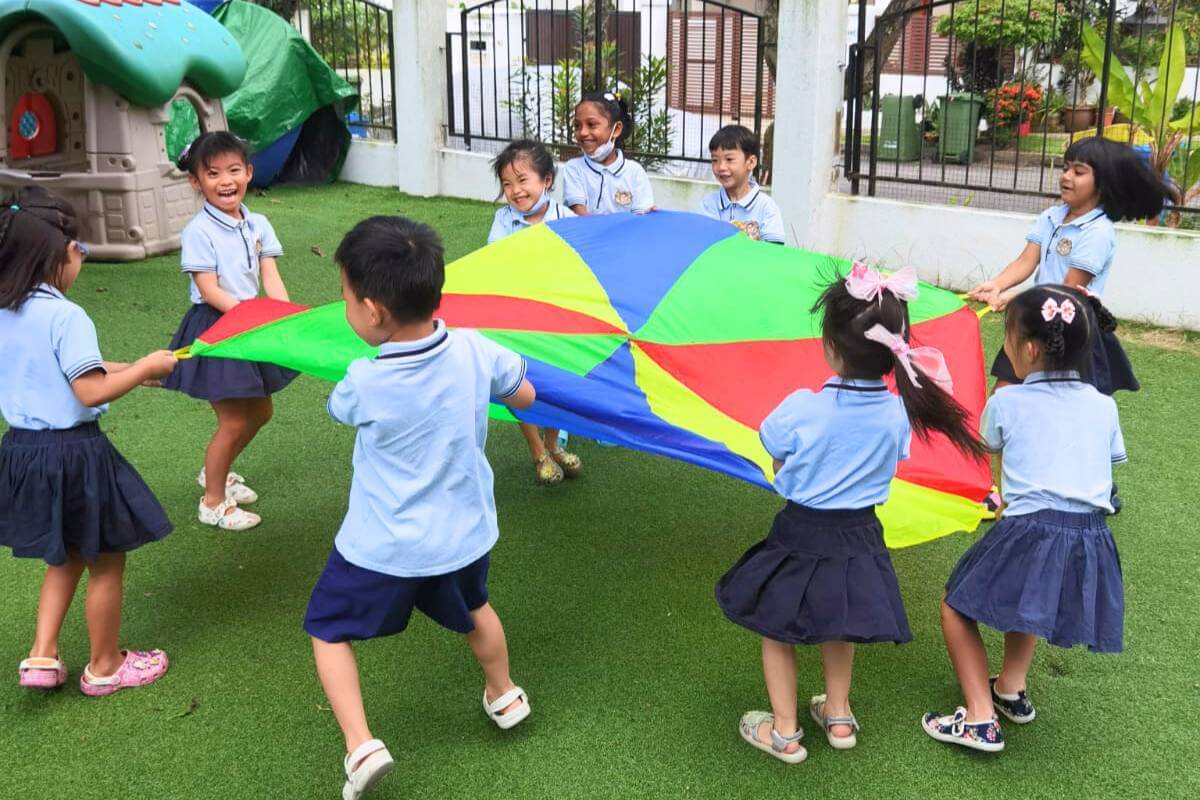Introduction: The Importance of Social-Emotional Development in Early Childhood
Overview of Social-Emotional Skills
Social-emotional skills are the foundation of how children understand themselves, relate to others, and manage their emotions. These skills encompass the ability to recognise and express emotions, develop empathy for others, and handle interpersonal interactions positively. They are central to a child’s capacity to form healthy relationships, communicate effectively, and adapt to various social settings.
Why These Skills are Crucial in Preschool Years
In the preschool years, children undergo significant emotional and social development. This period is critical for laying the groundwork for emotional intelligence, which is vital for academic success and overall well-being. Developing strong social-emotional skills during these formative years helps children navigate challenges, fosters resilience, and prepares them for the complexities of later social interactions. For parents and educators, emphasising these skills at an early stage is key to nurturing well-rounded, confident, and empathetic individuals.
First Key: Encouraging Empathy Through Interaction
Activities and Games to Promote Empathy
Empathy, the ability to understand and share the feelings of others, is best nurtured through interactive activities and games. For preschoolers, this includes role-playing exercises, where children take turns enacting different roles, fostering an understanding of diverse perspectives. Games that require collaboration and sharing can also enhance empathetic skills, as they encourage children to consider the feelings and needs of their peers. Discover more about our unique methods with our guide on creative ways to make learning Mandarin fun, which also enhances social skills.
The Role of Parents and Educators in Empathy Development
Parents and educators play a pivotal role in developing empathy in children. This involves modelling empathetic behaviour, such as showing concern for others and discussing emotions openly. In the classroom setting, teachers can incorporate empathy-building activities into their curriculum, such as group discussions about feelings and storytelling that highlights empathy. At home, parents can encourage empathy by discussing emotions in daily conversations and reading stories that focus on understanding others’ emotions. Gain insight into our Montessori inquiry-based learning approach in Singapore by reading this article.
Second Key: Building Confidence with Positive Reinforcement
Techniques for Fostering Self-Esteem and Confidence
Building a child’s confidence involves consistent positive reinforcement. This can be achieved through praise for effort rather than just success, encouraging a growth mindset. Activities that allow children to succeed at different levels, such as simple puzzles or group activities where each child has a role, are great for boosting self-esteem. Additionally, giving children small, manageable tasks can help them feel accomplished and confident in their abilities.
The Impact of Positive Feedback on Emotional Growth
Positive feedback is crucial in emotional growth. It helps children understand their worth and capabilities, fostering a sense of pride and achievement. Parents and educators should aim to provide specific praise, focusing on the effort and process rather than the outcome. This approach not only boosts confidence but also teaches children to value perseverance and effort, which are key components of long-term emotional resilience and success.
Third Key: Developing Emotional Intelligence Through Communication
The Power of Effective Communication in Emotional Development
Effective communication plays a crucial role in the development of emotional intelligence in preschoolers. It involves teaching children to express their feelings appropriately and to listen to others. Activities like ’emotion charades’, where children guess different emotions based on expressions and actions, can be highly effective. Regular conversations about feelings, both in the classroom and at home, also encourage children to understand and articulate their emotions.
Strategies to Teach Children About Emotions and Expression
Strategies for teaching emotions include using visual aids like emotion cards or charts, which help children identify and name their feelings. Storytelling that incorporates different emotional scenarios can also be beneficial. Parents and educators should create a safe and supportive environment where children feel comfortable expressing their emotions, whether it’s happiness, sadness, anger, or fear. This open communication lays the foundation for healthy emotional processing and empathy.
Fourth Key: Role-Playing and Storytelling as Learning Tools
How Role-Playing and Storytelling Aid in Understanding Social Situations
Role-playing and storytelling are powerful tools in teaching children about social situations and emotional responses. Through role-playing, children can simulate various social scenarios, helping them to understand different viewpoints and reactions. Storytelling, on the other hand, allows children to engage with characters in diverse emotional contexts, fostering empathy and social understanding.
Examples of Stories and Activities for Effective Learning
Integrating stories with moral lessons or emotional challenges can greatly aid in a child’s social learning. For example, stories that involve resolving conflicts or understanding feelings can be discussed afterward to reinforce the lessons learned. Activities like puppet shows or group storytelling sessions encourage active participation and reflection on social and emotional themes.
Fifth Key: Nurturing Responsibility and Independence
Practical Ways to Instill Responsibility and Independence
Teaching responsibility and independence starts with giving children age-appropriate tasks and responsibilities. This could include simple chores like tidying up toys or helping set the table. Encouraging children to make small decisions, like choosing their clothes or snacks, also fosters independence. It’s important to provide guidance while allowing children to try tasks on their own, offering support as needed. Explore innovative activities for positive growth in young minds in our dedicated article here.
Balancing Guidance and Autonomy in Early Childhood
The balance between providing guidance and allowing autonomy is crucial. While it’s important to supervise and assist children, it’s equally important to give them space to explore and learn from their experiences. Praising efforts towards independence and providing opportunities for self-directed play can greatly enhance a child’s sense of responsibility and autonomy. To understand the full benefits of outdoor learning in early childhood, explore our dedicated article here.
Conclusion: Integrating These Keys into Daily Routines
Summarising the Importance of a Holistic Approach
In conclusion, integrating these five key strategies into the daily routines of preschoolers is essential for their holistic development. The combination of empathy, confidence, emotional intelligence, social understanding, and independence forms the cornerstone of a well-rounded individual. These skills not only prepare children for academic success but also for life’s various challenges.
Tips for Parents to Incorporate These Strategies at Home
Parents can incorporate these strategies into everyday activities. Simple actions like discussing emotions openly, encouraging decision-making, and involving children in household tasks can make a significant difference. Consistency in these practices will reinforce the lessons learned and help in the overall development of the child.
About Starshine Montessori: Our Approach to Holistic Education
Brief Overview of Starshine Montessori’s Philosophy and Methods
Starshine Montessori is dedicated to nurturing the whole child through a balanced approach that combines academic excellence with personal growth. Our philosophy is rooted in the belief that each child is unique, and our methods are designed to cater to individual needs, fostering independence, curiosity, and a lifelong love for learning.
Invitation to Learn More and Engage with the Starshine Montessori Community
We invite parents and educators to learn more about our innovative approach to early childhood education. Join us in our mission to shape future leaders who are not only knowledgeable but also empathetic, resilient, and globally conscious. Discover more about our programmes and how we can partner in your child’s educational journey. Explore our programme offerings at different levels: Playgroup (PG), Nursery 1 (N1), Nursery 2 (N2), Kindergarten 1 (K1), and Kindergarten 2 (K2).
Follow us on social media to stay updated on our latest updates and happenings:







Comments are closed